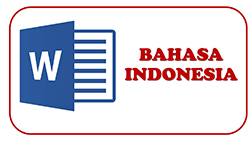Pemberdayaan Ekonomi Pesantren Berbasis Masyarakat
Abstract
The purpose of this study is to describe the role of the Salafiyah Syafi'iyah Sukorejo Islamic Boarding School in empowering the community's economy so that in the future an ideal system or construction of community economic empowerment can be realized that Islamic boarding schools can do. This research is included in qualitative research with a phenomenological approach, which is a form of research that aims to understand the real social reality as it is. Collecting data by interview, observation, documentation, and focus group discussion (FGD) and using interactive analysis. The results of this study indicate that the role of Islamic boarding schools in the economic empowerment of the surrounding community is very important in improving and improving the economic welfare of the surrounding community in the form of entrepreneurial motivation and management of business units, which exist in Islamic boarding schools, among others: trompa craftsmen, laundry services, shops, canteens, investment, convection, and trade. It does not only involve the students but also the community around the pesantren.
Downloads
References
Abdul Mun’im, As’ad , A., Mabruri , L. H., Fattah , M. M., & Al Khotimi , M. M. (2021). Pemberdayaan Santripreneur melalui Produksi “D’box Crispy“ di Pondok Pesantren Sunan Drajat Lamongan. KERIS : Journal of Community Engagement, 1(2), 83-93. Retrieved from https://ejournal.insud.ac.id/index.php/keris/article/view/420.
Andi, Y., & Islamy, M.I (2009). Efforts of the Pondok Pesantren to Empower Societies Living at Surrounding Forest Areas, 12(2), 376–401
Anwar, Moch Khoirul. (2008). Ekonomi dalam Pespektif islam. Islamic; Jurnal Studi keislaman, 3,(1). Surabaya : Pascasarjana IAIN Sunan Ampel.
Azizy, A. Qodri. (2004). Membangun Fondasi Ekonomi Umat, Meneropong Prospek Berkembangnya Ekonomi Islam. Yogyakarta:Pustaka Pelajar.
Haningsih, S. (2008). “Peran Strategis Pesantren, Madrasah Dan Sekolah Islam Di Indonesia.” El-Tarbawi1 (1): 27–39. http://www.jurnal.uii.ac.id/index.php/Tarbawi/article/view/186.
Haidari, Amin dkk., (2004). Masa Depan Pesantren dalam Tantangan Modernitas dan Tantangan Kompleksitas Global. Jakarta: IRD Press.
Lugina, Ugin . D. I. J. (2017). Pengembangan ekonomi pondok pesantren di jawa barat, (December), 53–64. https://doi.org/10.5281/zenodo.1227465
Maksum, (2001), Pola Pembealjaran di Pesantren, Jakarta : Direktor Pembinaan Perguruan Agma Islma Dirjend Kelembagaan Agama Islam Departemen Agama RI
Maunah, Binti. (2009). Pesantren In The Perspective Social Change. Jurnal Usuluddin 30: 251–82. https://ejournal.um.edu.my/index.php/JUD/article/view/7369
Moleong, Lexy J. (2006). Metode Penelitian Kualitatif. Bandung: Remaja Rosdakarya.
Muttaqin. Rizal (2011). Kemandirian dan pemberdayaan ekonomi berbasis pesantren, Jesi: Jurnal Ekonim Islam Indonesia. 1(2), DOI: http://dx.doi.org/10.21927/jesi.2011.1(2).65-94
Nadzir, M. (2015). Membangun Pemberdayaan Ekonomi Di Pesantren. Economica: Jurnal Ekonomi Islam, 6(1), 37-56. doi: https://doi.org/10.21580/economica.2015.6.1.785
Qamar, Mujamil. (2007). Pesantren dari Transformasi Metodologi Menuju Demokratisasi Institusi. Jakarta: Erlangga.
Rifki, A., Imron, A., & Mustiningsih. (2016). Manajemen Alumni di Pondok Pesantren Modern dan Salaf: Studi di Pondok Pesantren Nurul Jadid dan Sidogiri. Jurnal Pendidikan, 1(4), 686-691. http://journal.um.ac.id/index.php/jptpp/article/view/6224
Saptono, A. (2018). Pendidikan Kewirausahaan dan Pengaruhnya terhadap Literasi Keuangan dan Keterampilan Kewirausahaan di Kampus. Jurnal Pendidikan Kewirausahaan, 21(4), 1–11.
Suharto, Edi. (2005). Membangun Masyarakat, Memberdayakan Rakyat. Bandung: Refika Aditama.
Soepeno, Bamban. (2015), Fungsi dan apalikasi Teori Dalam Penelitian Sosial. Jember : Jember Uneversity Press
Toriquddin, Moh. (2011). Pemberdayaan Ekonomi Di Pesantren Berbasis Syariah. de Jure, Jurnal Syariah dan Hukum, (3) 1, 24-35. https://doi.org/10.18860/j-fsh.v3i1.1317
Usman, Sunyoto. (2003). Pembangunan dan Pemberdayaan Masyarakat. Yogyakarta: Pustaka Pelajar.
Wardi, M., Ismail, I., Zainollah, Z., & Wekke, I. S. (2019). Entrepreneurship And Financing In Islamic Educational Institution Of Darul Ulum Banyuanyar Pamekasan. Academy of Entrepreneurship Journal, 25, 1-14.
Widjajanti, Kesi. (2011). Model pemberdayaan masyarakat. Jurnal Ekonomi Pembangunan, 12(1),
Yakin, Nurul. (2014). Studi Kasus Pola Manajemen Pondok Pesantren Al-Raisiyah Di Kota Mataram. Ulumuna: Jurnal Studi Keislaman. 18(1). DOI:10.20414/ujis.v18i1.159





.png)










